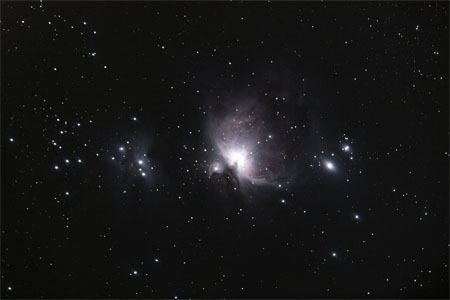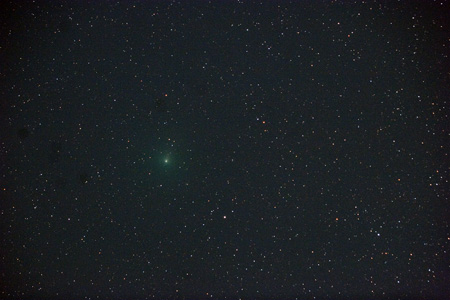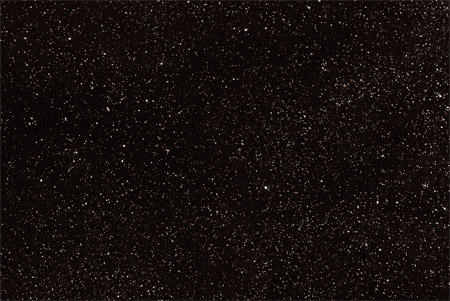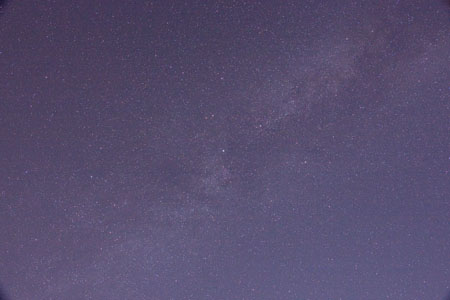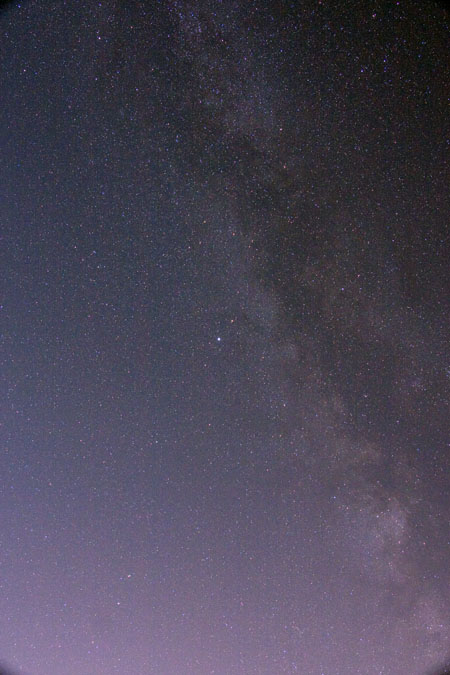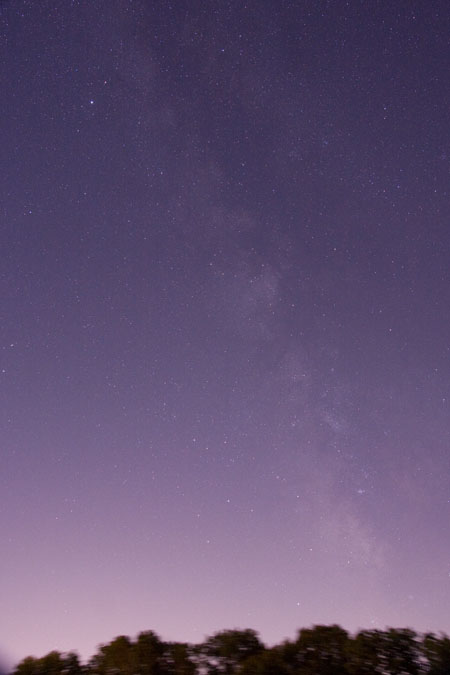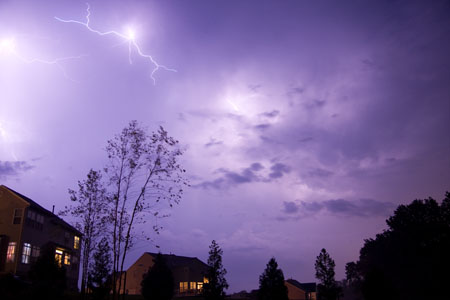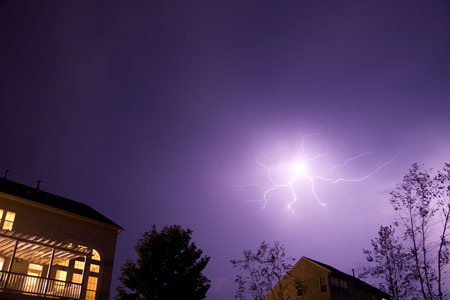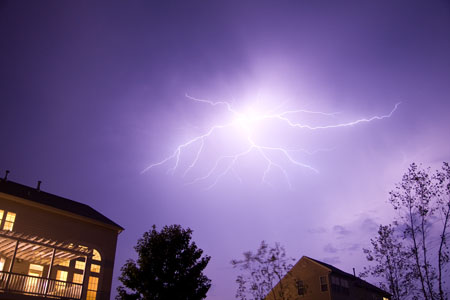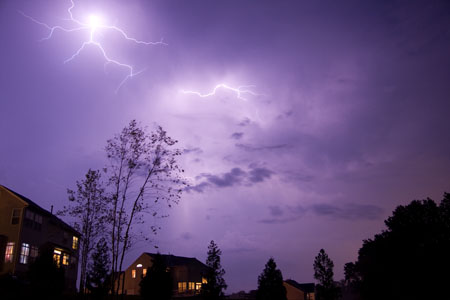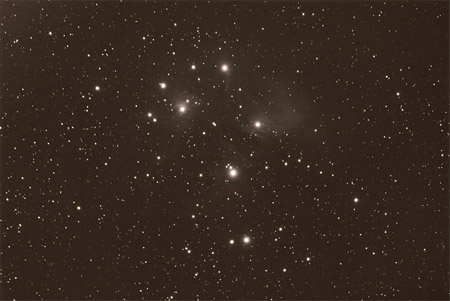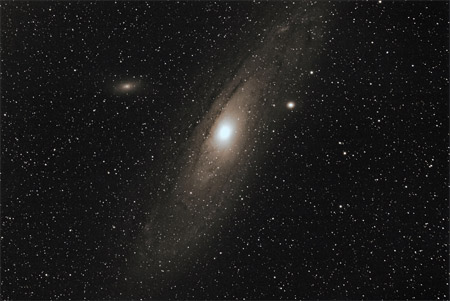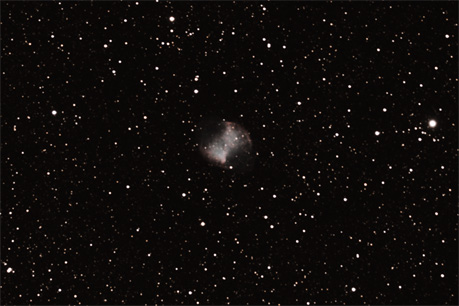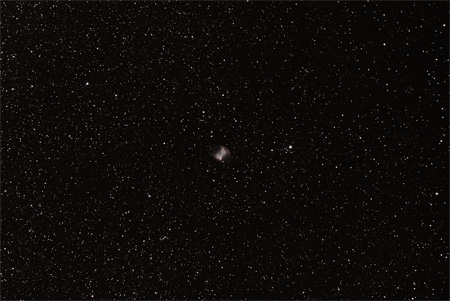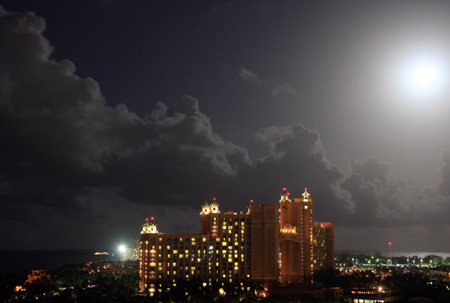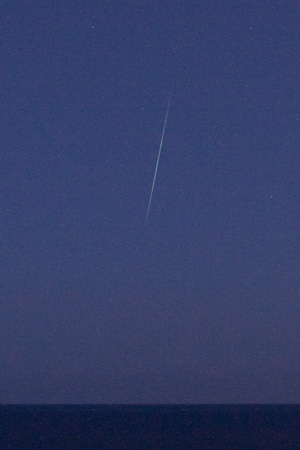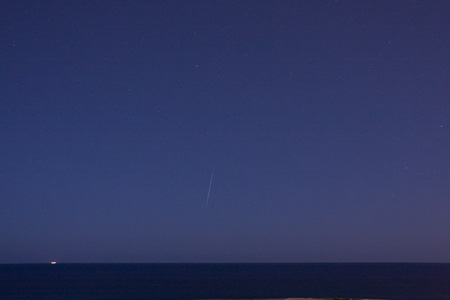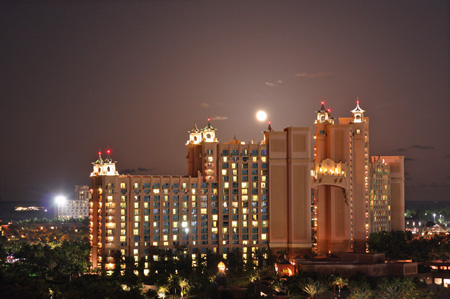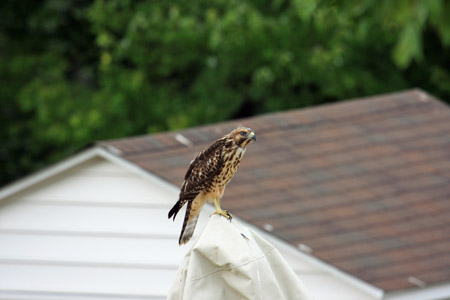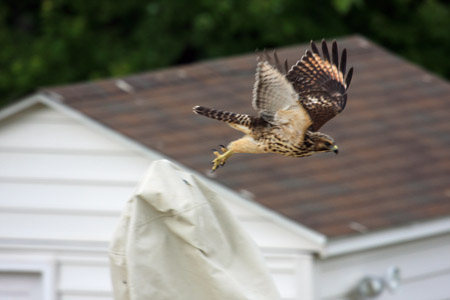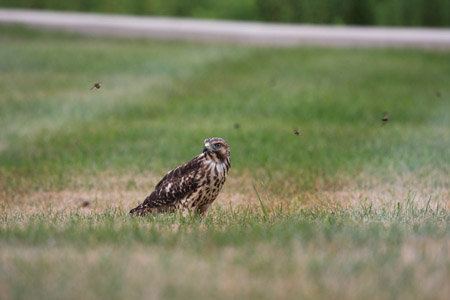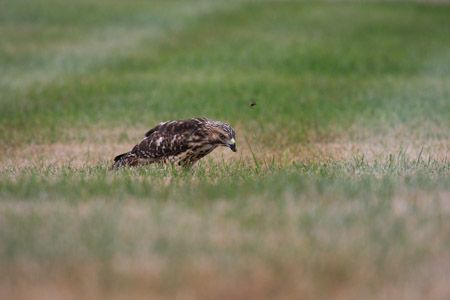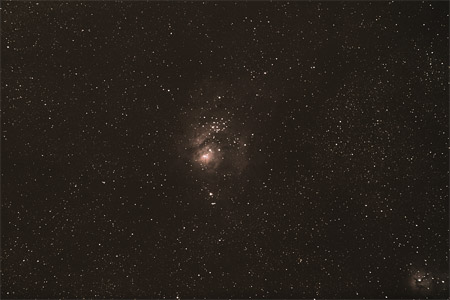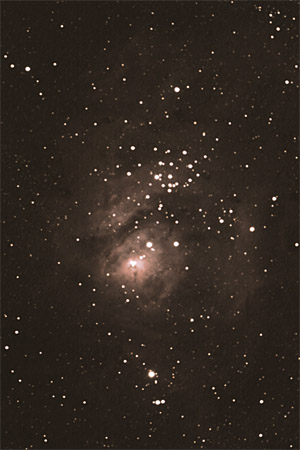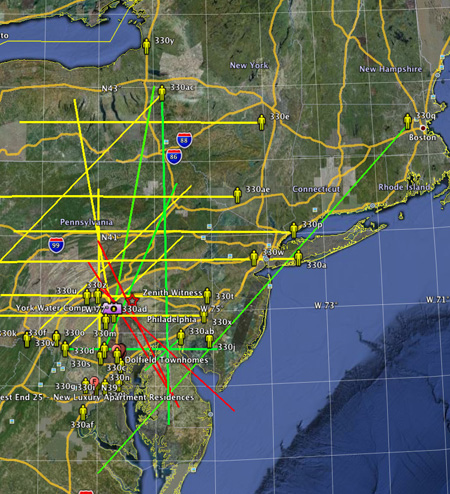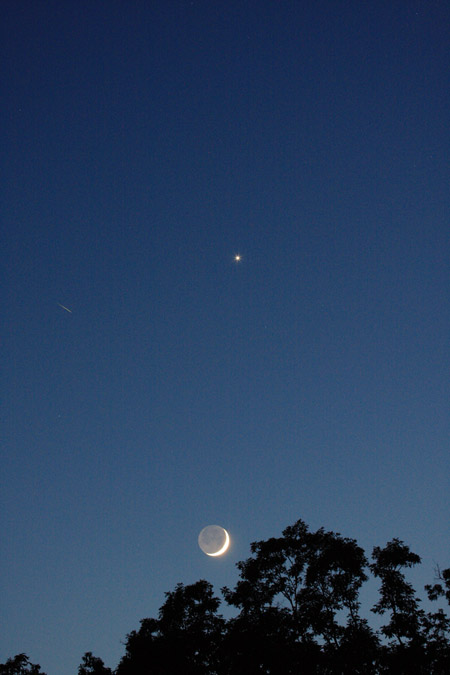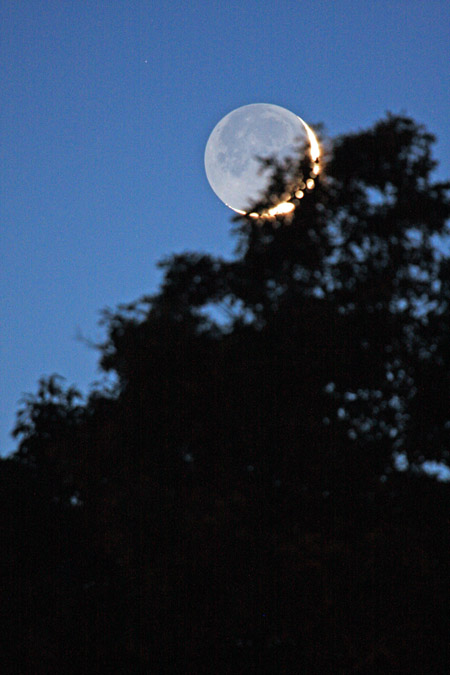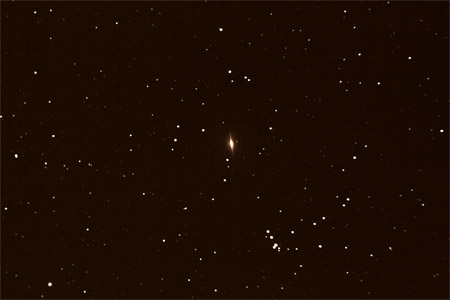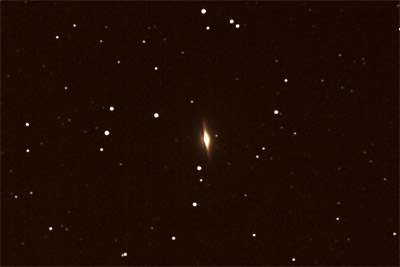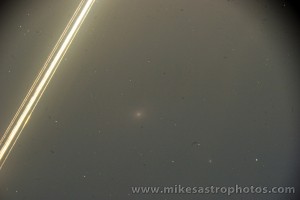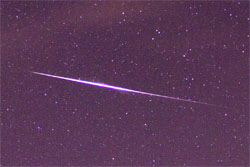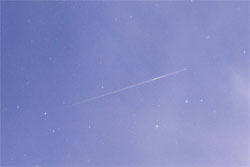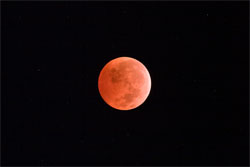M42 – The Great Orion Nebula
by Mike Hankey, under Nebula
Its that time of year again and Orion the hunter is currently rising in the east just before midnight. Orion is home to several spectacular nebula the most famous being M42 – The Great Orion Nebula. M42 is a defuse nebula situated just below Orion’s belt. Coming in at 24 light years across and only 1,344 light years away from Earth, the great nebula is big enough and bright enough to see with the naked eye, but without optics, its not much more than a smudge located in the center star of Orion’s sword. This diffuse nebula is one of the brightest nebula in the sky and a fantastic sight in binoculars or a small telescope. Here’s a recent picture of the nebula, much better than my first.
Photo Details:
William Optics FLT 98 / CGEM Mount
Canon 20Da Camera
SBIG STV Autoguider
12×3 minute ISO 400 exposures
Deep Sky Stacker
Photoshop cleanup
Comet Hartley 2 – 103P/Hartley
by Mike Hankey, under Comets & Meteors
Comet Hartley 2 was as close as it gets to Earth last week. I snapped these pictures the night after the peak (as peak night was cloudy.)
Here’s an animated GIF of a sequence of images taken over a 45 minute time period. Clouds were coming and going so I had to drop some frames at the beginning of the animation. The line that goes through one of the frames is a satellite.
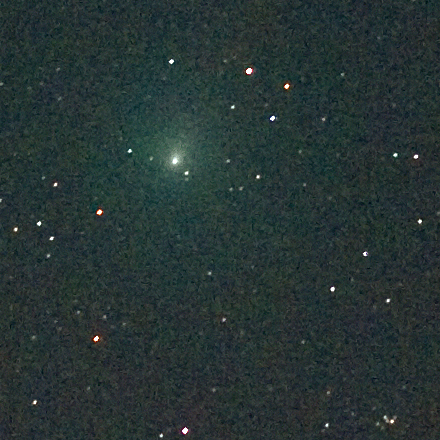
Comet Hartley 2 - Oct 22, 2010 16:26 - 17:17 UTC
The really really exciting thing about this comet is: NASA’s Jet Propulsion Laboratory is currently operating the EPOXI mission and one of the goals of this mission is to send a NASA probe (space ship) on a close fly by of this comet. This fly by is scheduled to take place in just a few days. You can read more about the EPOXI mission here.
Photo Details
William Optics FLT 98 / CGEM Mount
Canon 20Da Camera
No Auto Guider
30 second ISO 400 exposures
No stacking / no flat frame processing
minimal photoshop cleanup
UPDATE November 4th, 2010 From Gary Fujihara @ Big Kahuna Meteorites
For those of you who missed the live webcast, EPOXI spacecraft flew by Comet Hartley 2 a few minutes ago and took some absolutely stunning pictures with its Medium Resolution Imager. Here is a composite of 3 of the 5 closest approach images:
http://bigkahuna-meteorites.com/Images/CometHartley-04.jpg
And here is an Associated Press Story about the NASA mission.
Spiral Cluster
by Mike Hankey, under Stars
The Spiral Cluster, aka M34 is an open cluster in the constellation of Perseus found not far from the Perseus Double Cluster. M34 is an open cluster believed to have first been discovered by Giovanni Batista Hodierna sometime before 1654. In 1764 Charles Messier described it as
“a cluster of small stars between the head of Medusa and the left foot of Andromeda, a little below the parallel of gamma Andromedae. In an ordinary telescope of 3 foot [focal length] one can distinguish the stars.”
Photo Details
William Optics FLT 98 / CGEM Mount
Canon 20Da Camera
SBIG STV Auto Guider
24×3 minute ISO 400
Total Exposure Time: 1 hour 12 minutes
6 flat frames (av mode) & 1 dark
Most credible UFO story ever
by Mike Hankey, under Misc
So I heard about this story a few weeks ago. A bunch of retired US Air Force guys claim UFOs came to the nuclear missile silos in the US and remotely hacked our missiles and turned them off. These guys (over 100 of them) have recently met at a conference to discuss these events and the cover ups that followed. Here’s a video of the conference. This is pretty compelling stuff, not sure what to make of it. Comments welcome.
Summertime Milkyway
by Mike Hankey, under Stars
I took these milkyway photos this past July 4th, 2010. I mounted my DSLR and standard lens on top of my telescope, so that I could benefit from the mount’s tracking (and leave the shutter open longer to capture the milkway.) Each of these photos is a single 3 minute exposure @ ISO 800. I live in the suburbs, of the suburbs so it seems dark, but it is still considered an orange light pollution zone (just 2 notches down from the city). Surprisingly you can see the milkway quite well with your naked eye on a moonless summer night.
Lightning Storm
by Mike Hankey, under Clouds
A lightning storm blew through Baltimore County this past Wednesday September 22, 2010. It was a nice show with visible bolts firing every couple of seconds.
Pleiades
by Mike Hankey, under Stars
Here’s a photo of the Pleiades also known as the Seven Sisters. This open star cluster is one of the closest to Earth and clearly visible to the naked eye in the constellation Taurus. The prominent dust cloud surrounding the stars was once thought to be a nebula left over from the star formation, but is now believed to be just a dust cloud within the interstellar medium.
Photo Details
William Optics FLT 98
Canon 20Da Camera
13×3 minute ISO 400
SBIG STV Auto Guider
Andromeda
by Mike Hankey, under Galaxies
Here’s a recent photo of the Andromeda Galaxy taken with a William Optics FLT98. At a mere 2.2 million light years away, Andromeda is the closest spiral galaxy to Earth and visible as a fuzzy dot in binoculars or a small telescope. On a dark night you can see it with your naked eye or a basic camera lens. Andromeda is estimated to have over 1 trillion stars making it 2-3 times larger than the Milkyway.
Photo Details
William Optics FLT 98
Canon 20Da Camera
12×3 minute ISO 400
SBIG STV Auto Guider
M27 – Dumbell Nebula
by Mike Hankey, under Nebula
Here’s a picture of the Messier 27, the Dumbell Nebula, a planetary nebula 1367 light years away from Earth.
Full magnification cropped frame below.
and here is the full picture.
Photo Details
William Options FLT 98
Canon 20Da Camera
60×1 minute ISO 400
SBIG STV Auto Guider
Atlantis 2010
by Mike Hankey, under Misc
I recently went on vacation to Atlantis in the Bahamas and took some astro photos while I was there.
The full moon in July was called the hay moon because farmers cut their hay in July around this time. I can confirm this happens in Lancaster as I’ve seen more cut hay fields in the last two weeks than I have all year. Here’s a picture of the Hay Moon rising over Atlantis.
I really wanted to catch a meteor photo over the ocean, so I setup my camera and tripod on the balcony and waited. I caught one within 15 minutes, my first night trying, but not a single one after.
Here’s the full picture:
Here’s a picture of the moon just over the main towers the last night I was there.
A time lapse video of the moon rising:
And the sun rise the morning I went home.
Good times…
Hawk
by Mike Hankey, under Misc
I spotted this hawk in my backyard on Friday morning. He liked sitting on top of my covered telescope tripod.
He had a good view from up there and then saw something he liked.
There have been swarms of beatles in the yard the last few days and this guy was spotting out some breakfast.
Umm protein…good.
I wasn’t sure what type of hawk this was so I posted the pictures to a birding forum. This is what Mike Miller from Astromart had to say:
This is an immature Red-shouldered Hawk. Note the bright buffy bar, near the tip of the far wing in Photo #2. This is diagnostic for Red-shouldered, and cleanly separates it from Broad-winged, which can be very similar, especially with a perched bird.
Lagoon Nebula – M8
by Mike Hankey, under Nebula
Here’s a photo of Messier 8 — The Lagoon Nebula, a giant interstellar cloud in the constellation Sagittarius.
June 24th, 2010 – Another Baltimore / PA Meteor
by Mike Hankey, under Comets & Meteors
Another fireball meteor fell over Baltimore and PA on June 24th, 2010.
Orioles fans watched it streak across the Baltimore sky line during a night game Thursday. How cool would that have been!? Plus the O’s won.
Here’s a map of the AMS witness reports, some reports from Maryland Weather Blog and the York Water video (yes York Water captured this one too).
From an early analysis / quick eye up it looks like the termination point for this fireball is somewhere north west of Harrisburg. I have some new data that I’m working with while leads and information continue to come in. Its looking like meteorites may have landed in the Appalachian mountains which will be very difficult terrain to go meteorite hunting in.
Here are a view news stories. The York Daily Record story has a video of the fireball as it terminates.
http://weblogs.marylandweather.com/2010/06/meteor_during_orioles_game.html
http://www.ydr.com/ci_15379570?source=most_viewed
Will keep you posted.
Venus and the New Moon In June
by Mike Hankey, under Lunar
Here’s a photo of Venus and the New Moon.
The yellow streak in the middle left looks a bit like a squiggly meteor or a UFO, but its actually a firefly.

Firefly
Here’s a closeup of the moon right before it set.
Sombrero – William Optics FLT 98
by Mike Hankey, under Galaxies
Here’s a photo of the Sombrero Galaxy through the WOFLT98.
Here’s a crop at full resolution:
I’m still getting the hang of this scope, but check out the difference in zoom and quality with the Sombrero picture take with the SCT.
Photo Details
William Optics FLT98
Canon 20Da DSLR
3 frames @ 2 minutes each
ISO800
